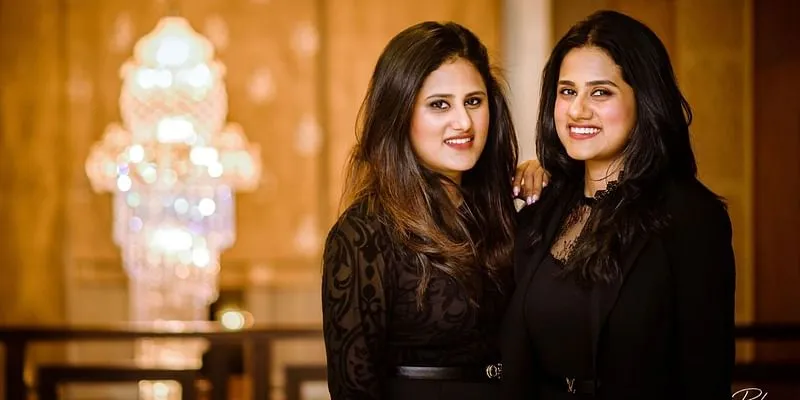These women entrepreneurs have started up with family members
Mother-daughter, sisters, sisters-in-law–meet the women who have turned to family while starting their own businesses.
When first-time entrepreneurs Kalpana and Uma Jha, both in their 50s, made their pitch on Shark Tank India, the judges were amazed by their simplicity and commitment to their business, that produces traditional pickles and chutneys of Mithila.
The sisters-in-law from Darbhanga, Bihar, fielded one question after another from the judges with ease, throwing in business terms like ‘average order value’ much to the surprise of the Sharks. Though they did not receive any funding from investors, they rose to popularity and their stock was sold out soon after the episode was aired. Later, the duo received an undisclosed amount of funding from revenue-based financier, Velocity.
The startup ecosystem is full of stories of how women have teamed up with their family members to start and run successful businesses.
Here are a few duos that need special mention:
Pratiksha and Vama Sangoi, Soap Chemistry
Pratiksha Sangoi started along with her daughter Vama in her home in Mumbai in the middle of the pandemic, in 2020.
Pratiksha made a bar of soap for her neighbour when she complained of acne. After receiving good feedback from friends and family, she decided to take the plunge and start Soap Chemistry with Vama with an initial investment of Rs 2 lakh.
In two years, Soap Chemistry has over 60 SKUs in the skincare line, with moisturisers, whipped soap, body salts, scrubs, hair removal, powder, lip balms and more, all lab tested in Mumbai. Soap Chemistry sells products through exhibitions and via Instagram and Facebook as of now.
Kainaz Messman Harchandrai and Tina Messman Wykes, Theobroma
The recipe for Theobroma’s famous brownie was born in a small Colaba kitchen, on the request of a neighbour of the founders, Kainaz Messman Harchandrai and Tina Messman Wykes. The 78-outlet chain across different India cities, and a multimillion-dollar venture, had its humble beginnings in what was a doctor’s clinic, hope, and a prayer.
An alumna of The Institute of Hotel Management (IHM), Mumbai, and Oberoi Centre of Learning and Development (OCLD), Delhi, Kainaz was a pastry chef at Oberoi Udaivilas in Udaipur.
Since its launch in 2004 with a seed capital of Rs 1 crore, the sisters borrowed from their father, Theobrama has established itself as a leading food and beverage destination and clocked a revenue of Rs 121 crore in FY21, and aims to double it this year.
Ramya and Shwetha Ravi, RNR Donne Biryani

Ramya and Shwetha Ravi
In November 2020, in the midst of a raging pandemic, sisters Ramya and Shwetha Ravi started a food delivery brand, , to serve naati-style Karnataka biryani. Today, it has 14 cloud kitchens and a restaurant in the heart of Bengaluru.
The sisters aimed to take donne biryani that is popular in Karnataka and known for its strong, green coriander base into the mainstream, dominated by other varieties of biryani like the Hyderabadi and Lucknowi biryanis.
In a conversation with HerStory, Ramya says, “During the pandemic, everyone was looking at the safety aspect when it came to food… we found a big gap when it came to donne biryani and decided to take a leap of faith.”
In September 2021, the sisters opened the first RNR Donne Biryani restaurant in Jayanagar 4th Block, Bengaluru. It offers cuisine that includes different kinds of donne biryanis, and other popular delicacies on the menu include naati koli curry, naati koli fry, drumstick chilly, elaneer payasam, double ka meetha, and goli soda.
Sudha and Ayessha Gurung, Junekeri Homes
In 2020, Ayessha Gurung started Junekari Homes, a homegrown brand that specialises in handcrafted goods for the home along with her mother Sudha.
As a D2C homegrown brand that specialises in home textiles and interior objects, all Junekeri products are made in small batches as the founders work directly with artisans at fair prices.
Employing a craft cluster approach, Junekeri collaborates with independent entrepreneurs, master artisans, and women-led collectives. Its products are made to last using traditional craft techniques that help ensure both craft preservation and job creation. Junekeri started out as an Instagram-first business before transitioning into its own web store.
Edited by Megha Reddy







![[YS Exclusive] BSE approves Solarium Green Energy's DRHP for IPO](https://images.yourstory.com/cs/2/a09f22505c6411ea9c48a10bad99c62f/Image9qf0-1733034783687.jpg?mode=crop&crop=faces&ar=1%3A1&format=auto&w=1920&q=75)
